By Bushrah Yusuf-Badmus, News Agency of Nigeria (NAN)
On a bright afternoon in Ilorin, Kwara, Bilkis Abdulkadir set out of her house to represent the community of Persons with Disabilities (PWDs) at a meeting organised by a non-governmental organisation.
Though she arrived at the venue half an hour late, she could not contribute to deliberations at the meeting; not because of her lateness, but because she is physically challenged and therefore, could not navigate the staircase alone, deepening the exclusion of the already marginalised community.
“I had to stay downstairs while the meeting was going on upstairs; I only marked attendance after I was briefed about the discussion, which made me feel very bad that day.
“On another day, I was also at a public function to represent the PWD community; I had to beg people to carry me upstairs and in the process of me being carried, I almost got injured which reminded me of my disability,’’ Abdulkadir said.
Similarly, Ramat Jawondo, a PWD, said she once had to leave a public function early because she was pressed to use the toilet, but all the toilets in the event centre could not allow her in with her wheelchair.
“I checked all the toilets in the event centre, they were all too small to accommodate wheelchairs to go in and come out easily; so I had to leave the event abruptly at a time I was not supposed to leave,’’ she said.
Abdulkadir and Jawondo’s predicament is the case of many PWDs in Kwara as they have little or no accessibility to public facilities in the state.
According to the World Health Organisation, 1.3 billion people globally have a significant disability, representing about 16 per cent of the world’s population.
Available statistics indicates that in Nigeria, approximately 15 per cent of the population, around 25 million people, live with disabilities.
Universally, access to public facilities is crucial for PWDs as it enables independence, safety, community participation, the fulfilment of their fundamental rights.
It also enhances access to essential services like healthcare and education, prevents exclusion from social and economic activities, and fosters a sense of belonging.
In Kwara, PWDs continue to face exclusion, notwithstanding the signing of the Disability Law by the immediate past governor, Abdulfatah Ahmed, since 2017.
Interestingly, Kwara was among the states that enacted the disability law even before the National Assembly enacted the Discrimination Against Persons With Disability (Prohibition) law in 2018.
However, the implementation of the law has been an issue.
For instance, Part IV Section 9, subsection 1 of the state law states that no public buildings shall be constructed without the necessary accessibility aids such as lifts, ramps and other facilities to make them accessible and usable to people with disabilities.
The law states further that the government shall ensure that roads, sidewalks, pedestrian crossings and all other facilities made for public use shall be made accessible to and usable by PWDs, including those on wheelchairs.
Though the law allows for a five-year transitory period for all public buildings and other public structures to be modified to be accessible to and usable by PWDs, the moratorium has lapsed since 2023.
Sadly, eight years after the law was passed, there has been no remarkable improvement in terms of transition both in government and private facilities, as well as in the establishment of the Office for Disability Affairs as envisaged in the law that enjoyed a public applause.
Mr Adebayo Gbadamosi, Chairman of the Joint National Association of Persons with Disabilities (JONAPWD) in Kwara, acknowledged that the predicament of PWDs in the state was improving.
According to him, there is still a long way to go.
He said that new projects embarked on by the present administration of Gov. Abdulrahman Abdulrazaq were considerate of PWDs, but the old buildings and offices remained inaccessible in contravening the extant law.
The lack of accessibility extends beyond education and public buildings to essential services such as banking, public transport, and employment.
The Chairman, National Association of the Blind, Mr Abdulhakeem Lawal, said he was swindled by somebody he asked to help him operate an ATM, as the machine did not have a sound function.
Lawal said those with hearing impairment were also falling victims of wrong diagnosis in the hospital as there were no interpreters in hospitals to communicate their complaints to the doctors.
The Discrimination Against Persons With Disability (Prohibition) Act, provides, among other things, legal protection against disability-based discrimination and mandates accessibility in public spaces and services.
It stipulates that, apart from the provision of facilities, there shall be the establishment of the Disability Commission, as stated in Part VII of the Act.
As stated in the Act, the commission shall formulate and implement policies and guidelines as appropriate for the education and social development of PWD, and also ensure the monitoring, evaluation and realisation of government policy objectives on PWD.
The Act, as domesticated in Kwara, stipulates the establishment of the Office for Disability Affairs.
Nonetheless, it has not even seen the light of the day as the state only has the Office of the Special Adviser to the Governor on Special Needs, headed by a PWD.
The PWDs believe that with the establishment of the disability commission in the state, their needs and challenges will be adequately and promptly attended to.
Gbadamosi, who is visually impaired, said lack of access and other things were the reasons for their clamour for a Disability Commission to address their challenges and concerns, as stated by the National Act.
On her part, the JONAPWD Women Leader, Mrs Joy Bolarin, who is a polio survivor, shared the Chairman’s sentiments.
She said the needs of PWDs were dynamic and could only be understood by a PWD.
“If there is a commission for us, committed to us and headed by one of us, it will help us to know where to channel our needs and challenges, because there is nothing for us without us, you can’t decide for us without us being present,’’ she said.
The Special Adviser to the Governor on Special Needs, Mr Habeeb Babaoloye, who is also a PWD, corroborated the improved welfare for PWDs in the state–only the new buildings that are accessible, leaving the PWDs at the mercy of able-bodied men to carry them in the old buildings.
According to him, the community of PWDs will continue agitating to the government to look into remodelling of the old buildings to make them PWD compliant.
The special adviser also advocated a disability commission as the state law on disability was already marred with some irregularities already identified by the community of PWDs, which made it necessary for its amendment.
Babaoloye, on his part, said he, alongside executive members of JONAPWD, had already met with the Speaker of the Kwara House of Assembly, Mr Yakubu Danladi-Salihu, on the need to amend the law and ensure its full implementation.
More so, Mr Abdurrahman Ayuba, the Executive Director, Centre for Community Empowerment and Poverty Eradication (CCEPE), said that non-access to public facilities in the state had prevented PWDs in the state from having equitable environments where everyone can participate fully and independently.
“Most of the government facilities are not accessible, for example, the Secretariat and the House of Assembly, there are no ramps, no lift, even the staircase has no colour code, for those with albinism or partial blindness, on the staircase to ensure that they do not fall down.
“Toilets are also to be constructed in a way that those on wheelchair or other forms of disability can access the toilet; we do not have that except in airports and new buildings that are springing up.
“Even in transport, the government buses cannot be boarded by somebody in a wheelchair.
“These are government facilities, but the law covers both government and private; so, if government facilities are not even accessible, how do you now take up private facilities?’’ he asked.
On his part, Mr Kehinde Akinsola of Connected Development said lack of access to facilities in the old buildings would be restricting the movement of PWDs to some of these places if they knew that their dignity would be affected if they went there.
Experts and stakeholders say there is need for stronger political will to fully domesticate and implement the Disability (Prohibition) Act in order to foster true inclusivity across board.(NANFeatures)
***If used, please credit the writer and the News Agency of Nigeria.


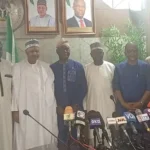


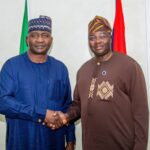

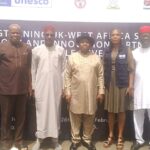
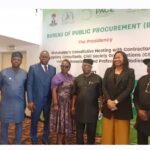
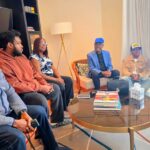
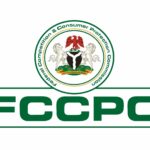
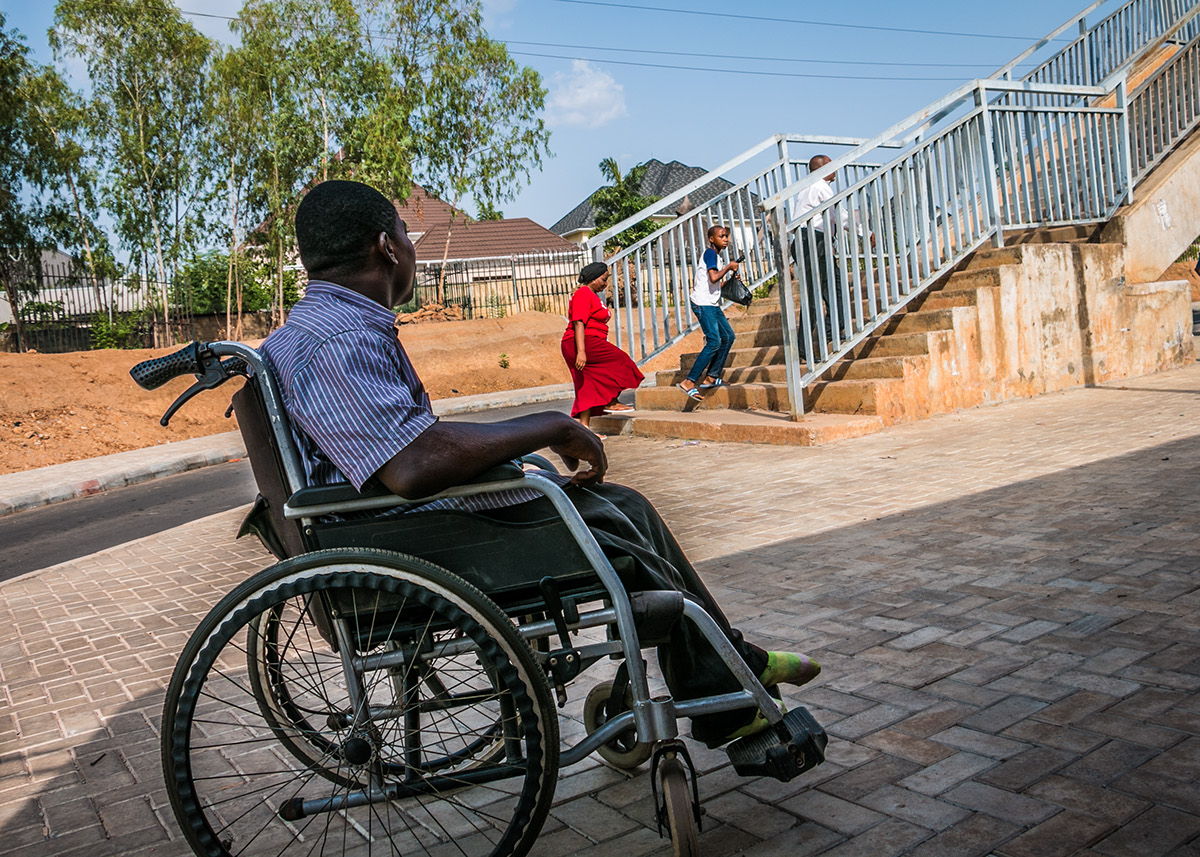

I don’t think the title of your article matches the content lol. Just kidding, mainly because I had some doubts after reading the article.
Thank you for your sharing. I am worried that I lack creative ideas. It is your article that makes me full of hope. Thank you. But, I have a question, can you help me?
I don’t think the title of your article matches the content lol. Just kidding, mainly because I had some doubts after reading the article. https://www.binance.com/register?ref=IXBIAFVY